- Home
- Pearl S. Buck
A House Divided Page 12
A House Divided Read online
Page 12
But Yuan could only cry out when he thought of that old fat pleasure-loving lord who was his uncle, “And when was my uncle ever strong! No, the only strong men in this country, I swear, are those who have armies and guns—they force all the others to their will, and who knows it better than I? I have seen my father force his will by threat of death a hundred times—a hundred hundred times. Everybody fears him because he has swords and guns—and now I see he is right—it is such force as this which rules at last—”
And Yuan began to sob, because he felt so helpless. All his running away and all his willfulness were of no use now.
But after a while he yielded to the lady’s urging and her comforting, and that very night she made a sort of feast and bid all the family there, and they all came, and when the feast was eaten, the lady told the matter forth, and they all waited to hear what was to be said.
Now Sheng and Meng and Ai-lan were there too, although they were given lower seats, since they were young, for at this time the lady had taken care to seat everyone as old custom taught, since this was a family gathering for counsel. But the young ones were silent and waited as they should. Even Ai-lan was silent, though her eyes sparkled to show she inwardly derided all this gravity, and would make a joke of it afterwards, and Sheng sat as though he thought inwardly of other pleasanter things. But Meng sat silentest of all and stillest. His face was fixed and very red and angry, and he thought of nothing but this thing and he suffered because he could not speak …
It was Wang the Eldest’s duty to speak first, but it could be seen he wished it were not, and Yuan, looking at him, gave up any little scanty hope he might have had that this man would say anything to help him. For Wang the Eldest was afraid of two. He was afraid of the Tiger, his younger brother. He remembered how he used to be a fierce young man, and he remembered that his own second son was in a very soft good life in a great inland city holding it almost as a governor in the Tiger’s name, and this son was nearly always ready to send his father silver now and then when Wang the Eldest had such need, and when had he not this need in this foreign city where there was every sort of way to spend it? So Wang the Eldest had no desire to make the Tiger angry. Beyond this one he feared his own wife, the mother of his sons, and she had told him plainly what he must say. Before they left their home she called him to her room and said, “You shall not take sides with the son. In the first place we older ones must stand together, and in the second place it may be we shall need your brother’s help some future time if this talk of more revolution comes to anything. We still have lands in the north to take thought of, and we cannot forget what we owe ourselves. Moreover the law is on the father’s side, and the young man should obey.”
These words she said so positively that now the old man sweat to meet her eyes she kept fixed on him, and he wiped his shaved head before he spoke, and drank a little tea, and coughed and spat once or twice and did all he could to put off what must come, but still they all waited, and so haltingly and gasping as he spoke, for he was always hoarse these days because his fat pressed inwards on him, he said, “My brother has sent me a letter and he says Yuan is to be wed. And I am told Yuan does not wish to wed. And I am told—I am told—”
Here he wandered off and met his lady’s eye and looked away and sweat newly and wiped his head again, and Yuan at the moment hated him with all his heart. To such a one as this, he thought passionately, was his life committed! Then suddenly he felt his eye commanded and he looked and Meng’s eyes were fastened upon him with great scornful question, and they said, “Have I not told you there is no hope for us in the old?”
But now the old man was forced on by his lady’s fixed cold gaze and he said very fast, “But I think—I think—it is better for sons to obey—the Sacred Edicts say—and after all—” Here the old man smiled suddenly, as though here he did think of something of his own to say, “After all, Yuan, my son, one woman is truly much like another, and after it is over you will not mind much and it will only be a day or two and I will write a letter to the master of your school and beg him to excuse you from your examinations, and if you please your father it will be better, for he is such a fierce angry man, and after all, the time may come when we need—”
Here his eye wandered to his lady again, and she bade him in such silent fierceness to be still that he ended suddenly and in great weakness, “It is what I think,” and he turned to his eldest son and said in much relief, “Speak, son, for it is your turn.”
Then the eldest son spoke, and he spoke with more reason, but on both sides, because he wished no offense to anyone. Yet he said kindly, “I understand Yuan’s wish to be free. I was so in my youth, and I remember that in my time I made a great pother about my marriage and would have whom I would.” He smiled a little coolly, and he spoke with more daring than he might have used if his sharp and pretty wife had been there, but she was not, for she was near the moment of a birth, and very angry these days that she must have another child after four already born, and she swore day and night that she would learn the foreign ways of not conceiving any more. So since she was not there he looked at his father and laughed a little and he said, “The truth is I often wonder why I made such a noise about it then, for in the end it is true what my father says, that women are the same, and marriage is the same, and the end is the same and sure to come. It is as well to marry cool at first, because it ends cold always, and love does not last so well as reason.”
And this was all. None other spoke. The learned lady did not speak, for where was the use before these two men? She kept her words for Yuan alone. And none of the young spoke, for to them speech was useless, too. These young ones as soon as could be slipped out one by one into another room, and there they talked to Yuan, each in his own way. Sheng thought the whole thing to be laughed at, and so he told Yuan. He laughed and smoothed his hair down with his pretty pale hands and he said, laughing, “If it were I, I would not even answer that summons, Yuan. I do feel for you, and I am glad I know my parents would not treat me so, for however they may rail against the new ways, they are used now to living in this city, and they would not truly force us to anything, and all their power spends itself in talking. Pay no heed—live your own life. Say nothing angry, but do as you please. You need not go home again.”
And Ai-lan had cried out vehemently, “Sheng is right, Yuan! You shall not think of it again. You will live here with us always, and we all belong to the new world and you can forget everything else. There is enough here to keep us all happy and amused our whole lives long. I swear I do not ever want to go anywhere else!”
But Meng kept silence until all the talk was over. Then he said with a slow dreadful gravity, “You all speak like children. By the law Yuan will be married on the day his father sets. By the law of this nation he will not be free again. He is not free—it does not matter what he says he is or thinks he is or how he amuses himself—he is not free. … Yuan, now will you join the revolution? Do you see now why we must fight?”
And Yuan looked at Meng and met his two burning savage eyes and caught the desperation of his soul. He waked for a moment and then from his own despair he answered quietly, “I will!”
So did the Tiger drive his son to be his enemy.
Now Yuan said to himself he could throw all his heart into this cause to save his country. Before this time, when it was cried to him, “We must save our country,” though his heart was always stirred because it seemed something which ought to be done, yet he was checked because he never could wholly see how the country must be saved, or if saved, then from what, or even what this word country meant. Even in his early childhood days in his father’s house when his tutor had so taught him he felt this impulse to save, and yet this bewilderment, so that while he would do something he did not know what to do. In the school of war he had heard of much evil done his country by foreign enemies, and yet his father was an enemy too and he could see nothing clearly still.
At this school it had been so also. He l
istened often to Meng’s talk of the same thing, how the country must be saved, for Meng had no other thing to talk of, if he did not talk of his cause, and he scarcely heeded his books at all these last days he was so busy in his secret meetings, and he and his comrades were always shaping protests against some authority in school or city and they made parades and marched along the streets carrying banners to cry against their foreign enemies and against evil treaties and against the laws of the city and of the school and against anything which was not in accordance with their own wish. They forced many to parade with them, even though these went sometimes against their will, for Meng could force his fellows by looks as black as any war lord’s, and he could roar and shout at a reluctant schoolmate, “You are no patriot! You are the running dog of foreigners—you dance and play while our country is destroyed by enemies!”
So Meng had even cried to Yuan one day when he pleaded he was busy and had no time for such parades. Sheng could laugh and jeer a little in his pleasant way if Meng came near him with his furious talk, for Meng was his younger brother first before he was the leader of young revolutionists, but Yuan was only cousin and he must evade the angry youth as best he could. And to this time the best hiding place had been his plot of land, for Meng and his comrades had no time for steady stupid plodding toil on land, and there Yuan was safe enough from them.
But now Yuan knew what it meant to save his country. Now he saw why the Tiger was an enemy. For, now, to save his country meant to save himself, and now he saw how his father was his enemy, and none could save him if he did not save himself.
Into the cause he threw himself. There was no need to prove his own sincerity since he was Meng’s cousin and Meng swore for him. And Meng could swear him true, because he knew Yuan’s reason for anger, and he knew the only surety of zeal for a cause is ever in such deep personal anger as Yuan now felt Yuan could hate the old because the old was now his particular enemy. He could fight to make his country free because only so could he be free. He went with Meng that same night, therefore, to a secret meeting held in a certain room in an old house at the end of a winding street.
This street was known as a street of prostitutes for poor men, and many men came and went there who were dressed anyhow and many young working men could come and go there and none remark them, because it was known what the place was. Down this street then Meng led Yuan. To the calls and noises of the place he paid no heed. He knew it well and did not even see the women who ran out from one door and another in search of trade. If one plucked at his sleeve too long he shook her hand away as though it were some senseless insect which annoyed him. Only when one laid too long a hold on Yuan did Meng shout out, “Let go of him! We have a certain place already—” He strode on, and Yuan beside him glad to be released, because the woman was so coarse and beastly in her looks and not young, so that she was very fearful in her leering fondness.
Then into a house they went where a woman let them in, and Meng turned up a stair and then into a room, and there were some fifty and more young men and women waiting. When they saw Yuan follow their leader in, the low talking ceased and there was an instant’s doubting silence. But Meng said, “You need fear nothing. This is my cousin. I have told you how I hoped he would join our cause because he has much help to give us. His father has an army even that one day might be for our use. But he was never willing. He never felt the cause clearly until today he knows what I have told him is the truth, that his own father is his enemy—as all our fathers are our enemies. Now he is ready—he hates enough to be ready.”
And Yuan, in silence listening to these words, looked round about on all those fiery faces. There was not one face there which was not somehow fiery, however pale it might be or however it was not beautiful, and the eyes of all looked the same. At these words Meng said, and at these eyes, his heart stopped a little. … Did he truly hate his father? Suddenly it was hard to hate his father. He wavered, stammering in his mind at that word hate—he hated what his father did—well enough he hated much his father did. At that very moment while he wavered someone rose out from a certain shadowed corner and came to him and put out a hand. He knew the hand and turning he looked into a face he knew. It was that maid, and she said in her strange lovely voice, “I knew some day you must join us. I knew there would be a thing to make you join us.”
At this sight and this touch, at the hearing of her voice, Yuan was so warmed and welcomed that he remembered freshly what his father did. Yes, if his father could do such a hateful thing as make him wed a woman he had never seen, then he did hate his father, too. He grasped the maid’s hand in his own. It was most wild and sweet to know she loved him. Because she was here and held his hand, he suddenly felt one of them. He looked quickly about the room. Why, they were all free here, free and young together! Meng was still talking. No one thought it strange that they two stood, a man and a maid, hand in hand, for here all were free. And Meng ended, saying, “I stand his guarantor. If he be traitor then I will die too. I swear for him.”
And the maid, when he had finished speaking, led Yuan out a few steps still holding fast his hand, and she said, “I, too—I swear for him!”
So she bound him to her and to her fellows. Without a word against it then Yuan took his pledge. Before them all and in the silence of all, his own blood was let a little with a small knife Meng drew across Yuan’s finger. Meng dipped a brush in the blood and Yuan took the brush and set his name in writing to the written pledge. Then they all rose together and received him and swore the pledge together, and gave a certain sign to Yuan to keep for proof of brotherhood and so was he at last their brother.
Now Yuan discovered many things he had not known. He found that this one brotherhood was netted to many scores of others everywhere and this net ran over very many provinces of that country and into many cities, and especially it ran southward, and the center of it all was in the great southern city where that school of war was. From that center there were given forth commands by secret messages. These messages Meng knew how to receive and read and he had his helpers who called together all the band, and then Meng told them what must be done, how a strike must be called or how a declaration must be written, and at the same time that he did this, in scores of cities was the same thing done, for thus were many young banded secretly in that whole country.
Every meeting of these brotherhoods was a step forward in the carrying out of a great plan of the future, and this plan was not so new to Yuan in truth, because he had heard of something much the same his whole life long. From his childhood his father had been used to say, “I will seize the seat of government and make a great nation. I will make a new dynasty,” for the Tiger had these same dreams in his youth. Then Yuan’s tutor had taught him secretly, “Some day we must seize the seat of government and make a new nation—” And in the school of war he heard it, and now he heard it still. Yet to many it was a new cry. To sons of merchants, sons of teachers, sons of quiet usual people, those sons who were beset with dull ordinary life, it was the mightiest cry that ever was. To speak of making a nation, of seeing the country rise to new greatness, of waging mighty wars against foreign peoples, made every common youth among them dream great dreams and see himself a ruler or a statesman or a general.
But Yuan was not so new to the cry, and often he could not shout so loudly as the others did, and sometimes he wearied them by asking overmuch, “How shall we do this thing?” Or he would say, “How can it save the country if we do not go to classes and spend our time only in parades?”
But he learned after a while to keep silence, for the others would not bear such talk, and it fell hard on Meng and on the maid if he did not do as the others did, and Meng told him privately, “It is not your right to question the orders that come through to us from above. We must obey, for only thus can all be ready for the great coming day. I cannot let you question thus, for the others may not, and they will say I favor my cousin.”
So Yuan must push down the question rising in him ev
en then, which was to ask where the freedom was if he must obey what he did not understand. He told himself doubtless they would have freedom later and he told himself that there was no other way to go, for it was sure he had no freedom with his father, and he had cast in his lot now with these others.
Therefore he did his duty as it was appointed to him these days. He made flags ready for the days of parade, and he wrote out the petitions to teachers for this thing or that, because his writing was clear and better than most, and he made himself stay out of class on days of strike when teachers would not grant what had been asked, although he studied secretly that he might not miss the learning, and he went to certain laborers’ houses and gave them sheets of paper whereon were written for them sayings which told them how abused they were in their labor and how they were given too little wage and how their masters grew rich from them, and all such things they knew already. These men and women could not read, and Yuan read to them, but they heard him gladly and they looked at each other aghast to hear how they were oppressed even more than they had thought, and one and another would cry out, “Aye, it is true our bellies are never so full as they ought to be—” “Aye, we do work all the day and in the night and our children are not fed—” “There is no hope ahead for such as us. What is today is the same tomorrow and forever, for each day we eat all we make,” and they looked at each other fiercely and in despair when they found how cruelly they were used.
And Yuan looking at them and hearing them could not but be sorrowful for them, for it was true they were used cruelly many times, and their children were not nourished but were starving pale and worked at looms and at foreign machinery for many hours every day and often died there and none cared. Not even their parents cared overmuch, since children are so easily made and born, and are always more than can be wanted in a poor man’s house.

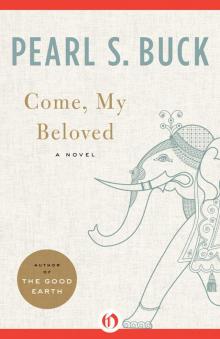 Come, My Beloved
Come, My Beloved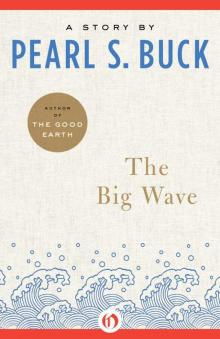 The Big Wave
The Big Wave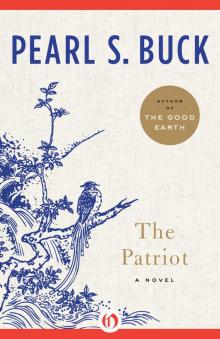 The Patriot
The Patriot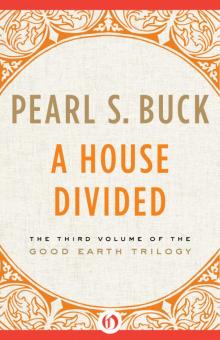 House Divided
House Divided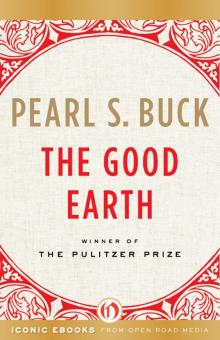 The Good Earth
The Good Earth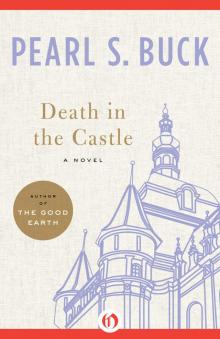 Death in the Castle
Death in the Castle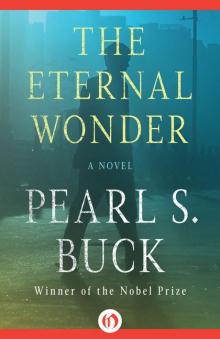 The Eternal Wonder
The Eternal Wonder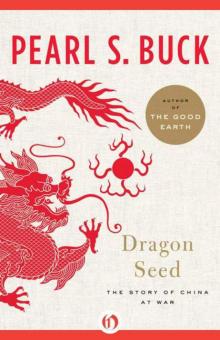 Dragon Seed: The Story of China at War
Dragon Seed: The Story of China at War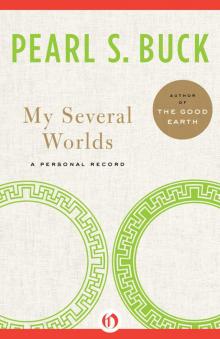 My Several Worlds: A Personal Record
My Several Worlds: A Personal Record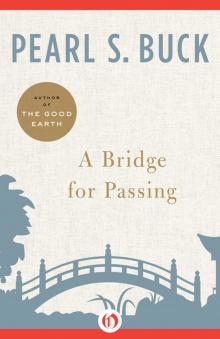 A Bridge for Passing: A Meditation on Love, Loss, and Faith
A Bridge for Passing: A Meditation on Love, Loss, and Faith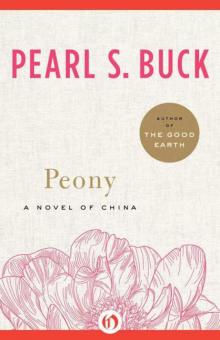 Peony
Peony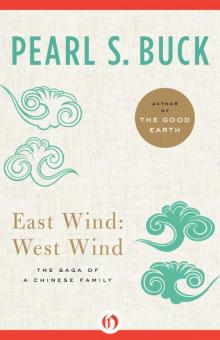 East Wind: West Wind: The Saga of a Chinese Family
East Wind: West Wind: The Saga of a Chinese Family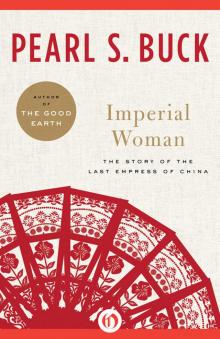 Imperial Woman
Imperial Woman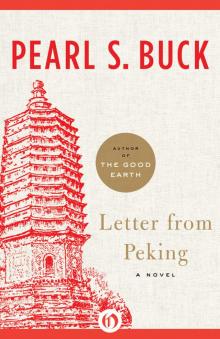 Letters From Peking
Letters From Peking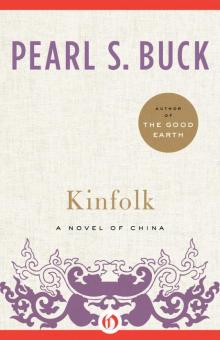 Kinfolk
Kinfolk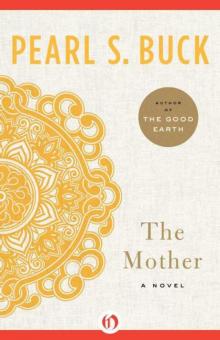 The Mother
The Mother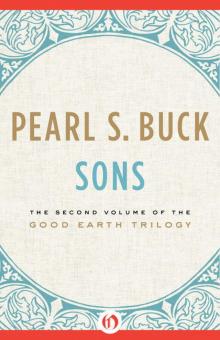 Sons
Sons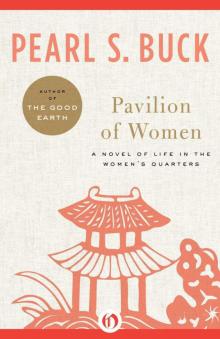 Pavilion of Women
Pavilion of Women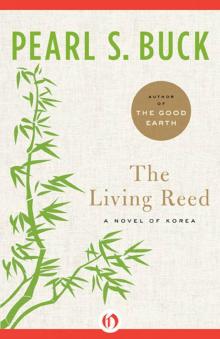 The Living Reed: A Novel of Korea
The Living Reed: A Novel of Korea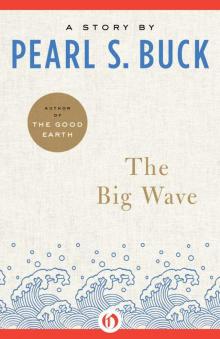 The Big Wave: A Novel
The Big Wave: A Novel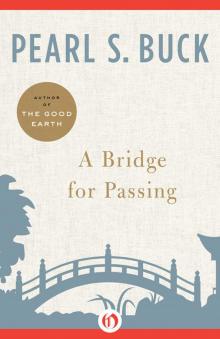 Bridge for Passing
Bridge for Passing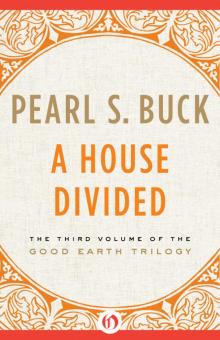 A House Divided
A House Divided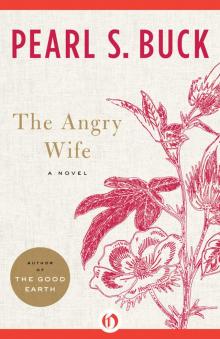 Angry Wife
Angry Wife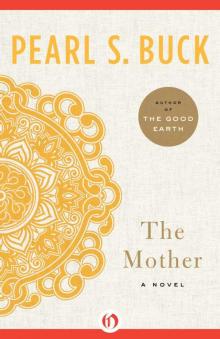 The Mother: A Novel
The Mother: A Novel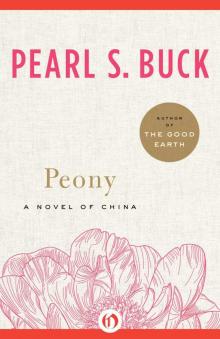 Peony: A Novel of China
Peony: A Novel of China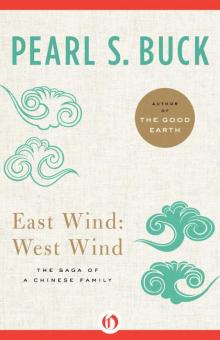 East Wind: West Wind
East Wind: West Wind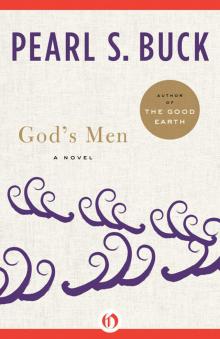 Gods Men
Gods Men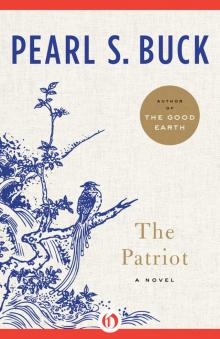 Patriot
Patriot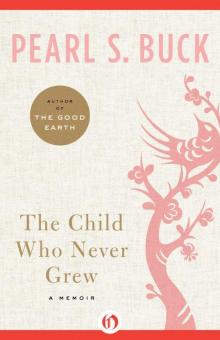 The Child Who Never Grew (nonfiction)
The Child Who Never Grew (nonfiction)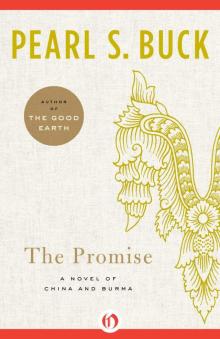 The Promise: A Novel of China and Burma (Oriental Novels of Pearl S. Buck)
The Promise: A Novel of China and Burma (Oriental Novels of Pearl S. Buck)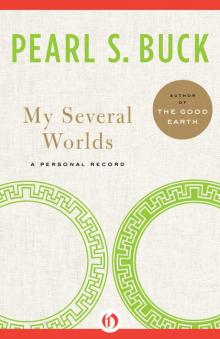 My Several Worlds
My Several Worlds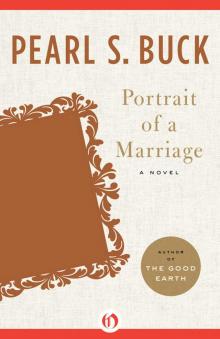 Portrait of a Marriage
Portrait of a Marriage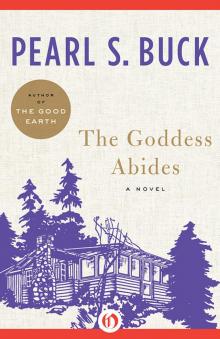 The Goddess Abides: A Novel
The Goddess Abides: A Novel Hidden Flower
Hidden Flower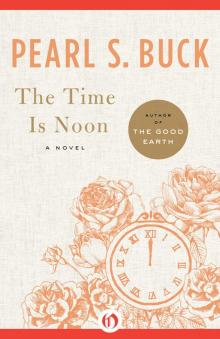 Time Is Noon
Time Is Noon